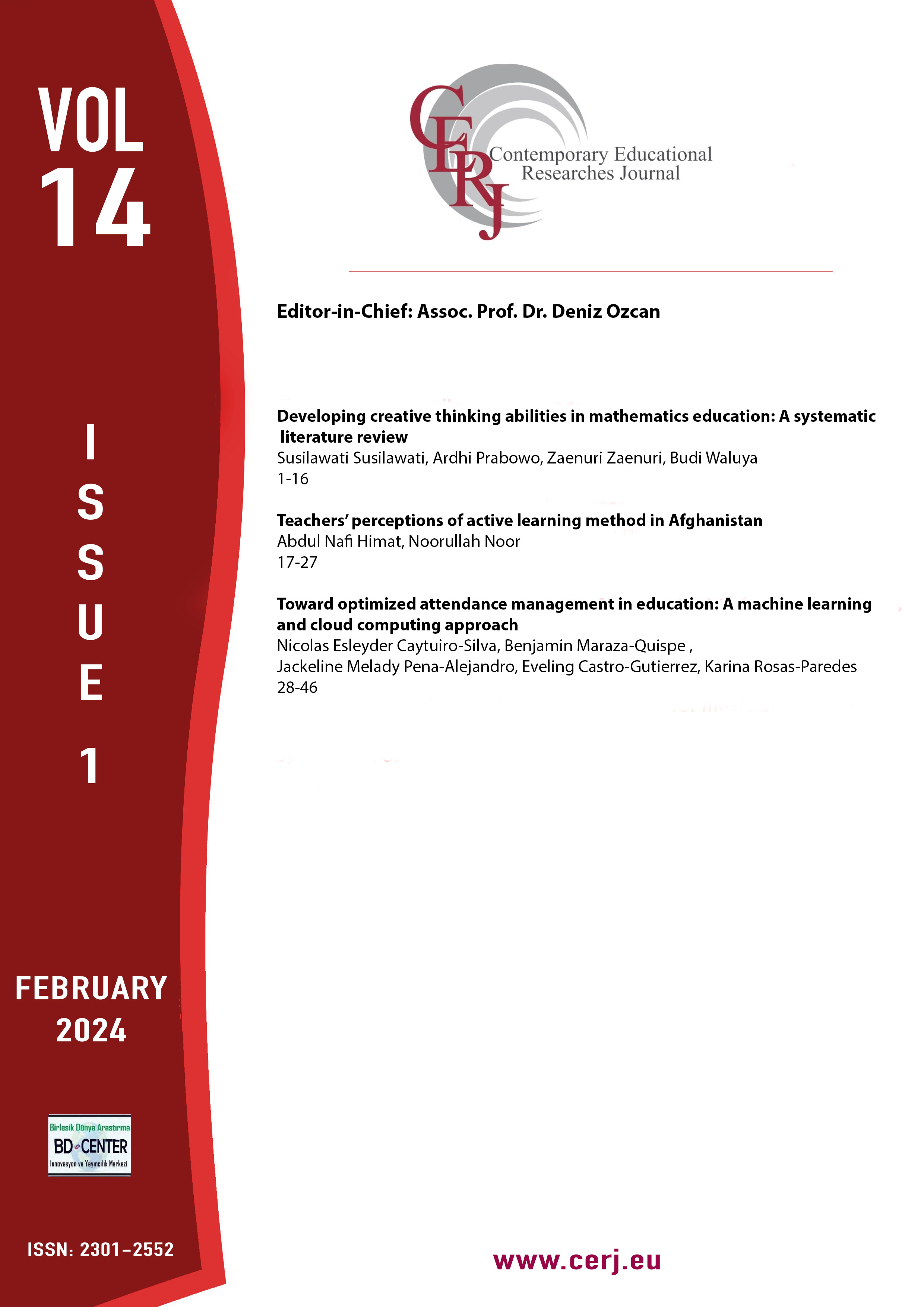Teachers’ perceptions of active learning method in Afghanistan
Main Article Content
Abstract
Active learning has brought many changes in the educational context. The objectives of this study were to examine the perception of teachers towards the student-centered method and the challenges that hinder its implementation in two high schools in Kandahar, Afghanistan. A quantitative approach was employed, and the data was collected through a questionnaire. The participants were eighty-six teachers, and they were elected through a random sample. The findings revealed that instructors have a positive view regarding the student-centered method. Similarly, teachers support the active involvement of students, and persuade students during the teaching, and they are responsible for the learning of learners. Likewise, teachers connect new lessons with learners’ prior experiences, and they motivate them to provide comments about their learning to lecturers. The large number of students, deficiency of teaching materials, and lack of time were the challenges to the use of a learner-centered approach.
Keywords: Active learning; challenges; perceptions; teachers
Downloads
Article Details

This work is licensed under a Creative Commons Attribution-NonCommercial-NoDerivatives 4.0 International License.
Authors who publish with this journal agree to the following terms:
- Authors retain copyright and grant the journal right of first publication with the work simultaneously licensed under a Creative Commons Attribution License that allows others to share the work with an acknowledgement of the work's authorship and initial publication in this journal.
- Authors are able to enter into separate, additional contractual arrangements for the non-exclusive distribution of the journal's published version of the work (e.g., post it to an institutional repository or publish it in a book), with an acknowledgement of its initial publication in this journal.
- Authors are permitted and encouraged to post their work online (e.g., in institutional repositories or on their website) prior to and during the submission process, as it can lead to productive exchanges, as well as earlier and greater citation of published work (See The Effect of Open Access).
